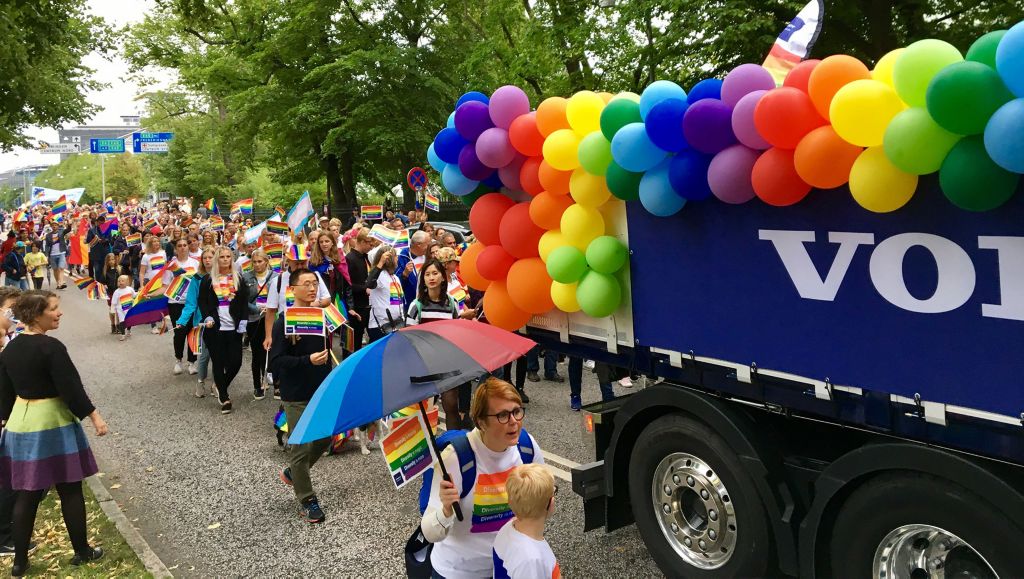How stereotypes are harmful to the LGBTQ+ Community


“You cannot be gay, you don’t act feminine, or wear make up!”
“How come you are a lesbian? You do not wear masculine clothes and have short hair!”
“How can you keep a monogamous relationship when you’re bisexual?”
“So, you’re a trans woman, but you do not look like the drag queens on social media!”
"Isn’t Intersex just another word for transgender?"
Although these statements, and many others, seem like common belief or general expectation, they are all stereotyping statements and are extremely harmful for the people who belong to the LGBTQIA+ community (Lesbian Gay Bisexual Transgender Queer Intersex Asexual and more).
Stereotype is any wrong idea or belief about a concept or a group of people. The stereotypes generally exist due to the inclination to put people in categories so it’s easier to predict their behavior and have easier control on them. There are many different sorts of stereotypes in the world that are toxic and unfair. LGBTQ+ stereotypes are just one example and they that tend to focus on categorizing and thus controlling the LGBTQ+ community.
The stereotypes which are self-expression related (eg. clothing, grooming, make up, gestures, etc.) put constant pressure on LGBTQ+ people to behave in a certain way, talk in a certain tone, wear certain type of clothes (i.e. straight acting) in order not to be labelled as LGBTQ+. The internal pressure built up around self-expression brings about a lot of self-doubt, hate or a feeling of alienation.
Stereotyping on gender identity also deeply affect the LGBTQ+ people. The pressure to fit in the gender norms of the society is what locks transgender or non-binary individuals in their inner worlds. Making peace with a mismatch of one’s physical sex and gender identity (i.e.transgender) or not conforming to the binary based gender system (i.e. nonbinary) already have their own innate challenges for those individuals. The societal pressure makes those individuals’ lives much more difficult and makes it harder to face to truth and overcome personal struggles.
Sexual orientation-based stereotyping also harm LGBTQ+ individuals by causing them to live double lives. The LGBTQ+ individuals either hide their partners from others or mention them as if they belong to the opposite sex. They start wearing masks in society and become completely different people in certain environments (e.g. closeted at work, out-of-closet with friends). This duality induces similar feelings of alienation from self, self-loathing, low self-esteem, etc.
Stereotyping makes us lose contact with that individual being categorized and disregard all the other qualities of that person we cannot immediately see. By categorizing, we neither encourage them to show their different sides to us or create the opportunity to truly bond with them.
The key to stop stereotyping is to keep an open mind, constantly. Prejudices formed by past experiences or things heard from others would generally put us on the wrong track. Start by breaking your prejudices by making room for any variation of character, behavior, lifestyle or choices for any individual. When you meet an LGBTQ+ person next time, ask them questions, learn more about them, share your individual traits with them and let them share theirs with you.
You will be so surprised to hear how diverse LGBTQ+ people are than the perceptions in your mind.
Unlearning the toxic habits of stereotyping and acting on others’ stereotyping is another key behavior. When you hear someone talking with a stereotype idea in mind, you can stop that person and provide them examples of the opposites which do not fit in that stereotype, or even how stereotyping is harmful to the individuals being labelled.
To sum up, it is great to find similarities with each other and feel comfortable. But do not forget that we are all different from each other one way or another. Our differences make us unique and special.
Providing space and the opportunity to be different and embracing those differences with an open mind is the key to have truly included LGBTQ+ individuals, better relations, and a harmonized society.